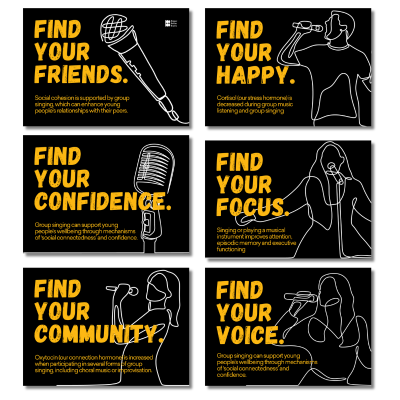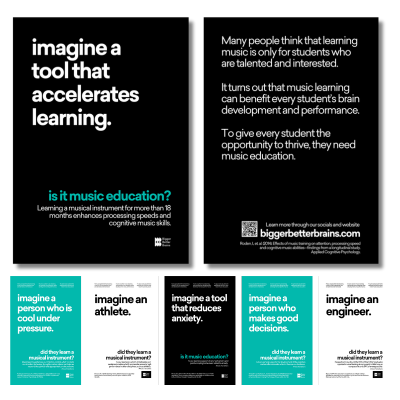
Research Updates

Here at Bigger Better Brains we believe that through educating yourself, you can then educate and affect positive change in your community.
With all of the research in the field of neuromusical science, our BBB Research section serves as a content hub for you. We regularly share findings and break down the latest research to educate and inspire discussion. We hope you enjoy this page on our website and share BBB news with your colleagues, parents and students.
Prenatal Rhythm: How Fetal Brains Tune into Music
A new study in the Journal of Neuroscience reveals that our brains start processing rhythm as early as 27 weeks into pregnancy.
Music learning is the cheapest diagnostic tool you can find!
Music learning is the most effective way, both in terms of time and impact, to prime the brain for language learning.
7 Amazing Reasons to Introduce Music in Early Childhood Education
If you are looking to develop your child’s emotional, social, motor and cognitive skills from early childhood, then try introducing music in early educational programs. Watch this video to learn more!
New neuroscience research upends traditional theories of early language learning in babies
New research challenges traditional theories of infant language acquisition, suggesting that babies primarily learn language through rhythmic rather than phonetic information in their initial months.
Music is the Jackpot!
This video contains excerpts from an ARTSpeaks event held on November 8, 2021. In this video, neurobiologist Nina Kraus explores the impact that music learning has on young students in the areas of reading skills, sound processing, language abilities, and more.
Does music training improve a child’s maths and reading skills?
A great article from Dr Nina Kraus, one of the leading researchers in the neural encoding of speech and music.
How is music related to English language reading?
This study has compared musical training with the visual aspect of reading languages. The most interesting thing about the study design is that they have compared Chinese language reading and English language reading.
Getting to the bottom of music and reading
This study is important because it is trying to get to the bottom of the neural development of the auditory and motor networks. It is, however, building on the research from musically trained children and reading.
Boost your child's reading skills in just 10 minutes a week
10 minutes of music learning a week for 10 weeks can improve reading skills for poor readers.
Rhythm and Reading
This brand new study with beginner readers (aged 5-7) found a whole swag of connections, concluding that “rhythm skills and literacy call on overlapping neural mechanisms, supporting the idea that rhythm training may boost literacy in part by engaging sensory‐motor systems”.
Little ears are listening: How babies learn to talk before they’re even born
This article is packed with fantastic research from the MARCS Institute in Sydney, Australia. It is vital to study the first developmental steps in all areas of life.
Hospitals are prescribing music therapy for babies
“Research suggests music helps parents bond with babies who have had a harrowing start to life and may benefit the babies’ health and brain development.”




















